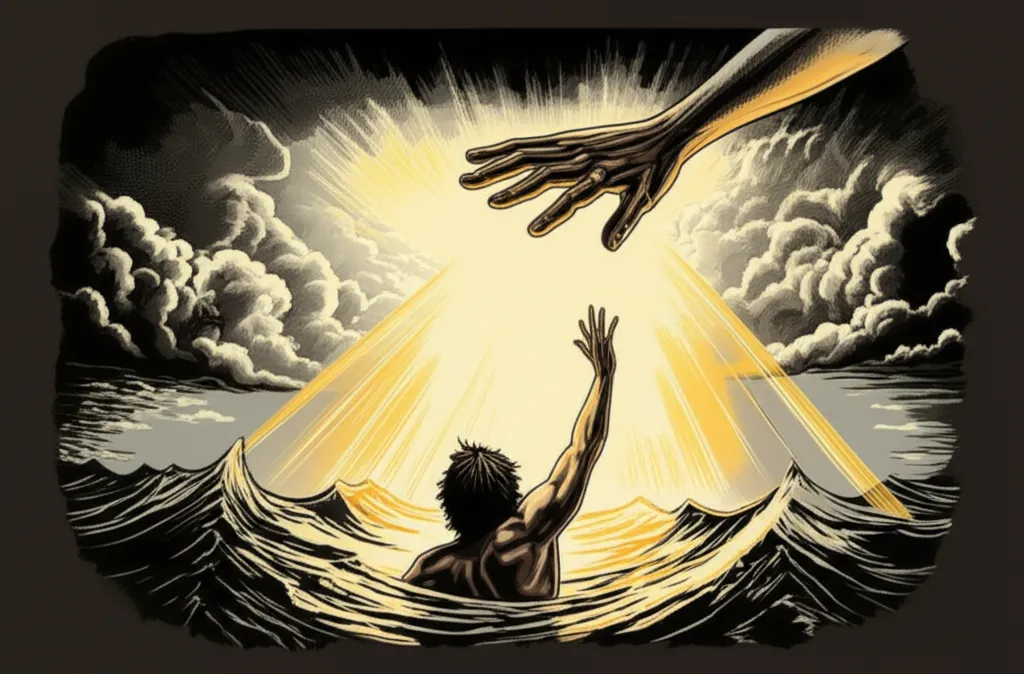In our daily lives, we often encounter stories of rescue, repentance, and the weight of responsibility. Today's readings offer profound reflections on these themes, inviting us to examine our own hearts and actions in light of God's mercy and justice. As we navigate the complexities of modern existence, these ancient words provide guidance and challenge us to live with greater intention and compassion.
A Life Preserved, A Future Unfolding
The story of Moses from the Book of Exodus (Exodus 2:1-15a) is a powerful testament to divine providence. Born into a time of oppression, his life is miraculously spared through the courage of his mother and the compassion of Pharaoh's daughter. This narrative reminds us that even in the darkest of times, God's hand is at work, orchestrating events to fulfill His purposes.
Consider the countless individuals today who face seemingly insurmountable challenges – refugees fleeing war, families struggling with poverty, or those battling illness. Like Moses, their lives may seem precarious, yet their stories are not without hope. We are called to be instruments of God's mercy, offering support, advocacy, and a helping hand to those in need. Just as Pharaoh's daughter recognized the inherent worth of the Hebrew child, we must see the dignity and potential in every human being, regardless of their circumstances.
The early Church understood this call to action deeply. One of the early fathers, who was a disciple of John the Apostle, emphasized the importance of practical righteousness and steadfastness in faith, urging believers to live virtuous lives and avoid avarice. This call resonates today, reminding us that our faith must be expressed not only in words but also in deeds of love and service.
The Cry for Deliverance
The Responsorial Psalm (Psalm 69:3, 14, 30-31, 33-34) echoes the cry of the afflicted, a plea for deliverance from the depths of despair. "Turn to the Lord in your need, and you will live," the refrain reminds us. This psalm speaks to the universal human experience of suffering and the importance of turning to God in times of trouble.
In our contemporary world, many feel overwhelmed by the "abysmal swamp" of personal struggles, societal injustices, or global crises. The psalm encourages us to pour out our hearts to God, trusting in His "constant help." It also reminds us that God hears the cries of the poor and does not spurn those in bonds. This is a message of hope for those who feel marginalized or forgotten.
Drawing from the wisdom of early Christian thinkers, we can understand this plea for deliverance as a longing for the divine Logos, the Word through whom all truth is revealed. Just as the psalmist seeks God's favor, we too can find solace and guidance in Christ, the incarnate Word who understands our struggles and offers us a path to redemption.
Repentance and Responsibility
The Gospel reading from Matthew (Matthew 11:20-24) presents a stark warning to those who have witnessed God's mighty deeds but have failed to repent. Jesus reproaches the towns of Chorazin, Bethsaida, and Capernaum for their lack of repentance, stating that even Tyre and Sidon, notorious for their wickedness, would have repented if they had seen such miracles.
This passage challenges us to examine our own hearts and actions. Have we become complacent in our faith, taking God's blessings for granted? Are we truly living in accordance with the Gospel message, or are we merely going through the motions? The call to repentance is a call to conversion, a turning away from sin and a turning towards God.
A prominent bishop of Milan in the late Roman Empire, known for his powerful preaching and defense of orthodoxy, understood the importance of repentance and moral responsibility. He famously compelled Emperor Theodosius I to do public penance, asserting the Church's moral authority. This example reminds us that no one is above the call to repentance, and that true faith requires a willingness to acknowledge our shortcomings and seek God's forgiveness.
Saint Bonaventure: A Model of Wisdom and Holiness
Today, we also celebrate the Memorial of Saint Bonaventure, Bishop and Doctor of the Church. Bonaventure, a Franciscan theologian, was known for his profound intellect and deep spirituality. He sought to reconcile faith and reason, emphasizing the importance of both intellectual understanding and mystical experience in the pursuit of God.
Bonaventure's life and teachings offer a powerful example for us today. In a world often divided by ideological differences and intellectual arrogance, he reminds us to approach truth with humility and openness. He encourages us to seek wisdom not only in books but also in prayer, contemplation, and service to others.
A Harmonized Call to Action
In conclusion, today's readings invite us to reflect on the themes of rescue, repentance, and responsibility. The story of Moses reminds us of God's providence and our call to protect the vulnerable. The Responsorial Psalm encourages us to turn to God in times of need. The Gospel challenges us to examine our hearts and repent of our sins. And the life of Saint Bonaventure inspires us to seek wisdom and holiness in all that we do.
As we go about our daily lives, let us strive to live out our faith with sincerity and conviction, offering compassion to those in need, seeking forgiveness for our sins, and pursuing a deeper relationship with God. May we be instruments of His love and justice in a world that desperately needs both.
